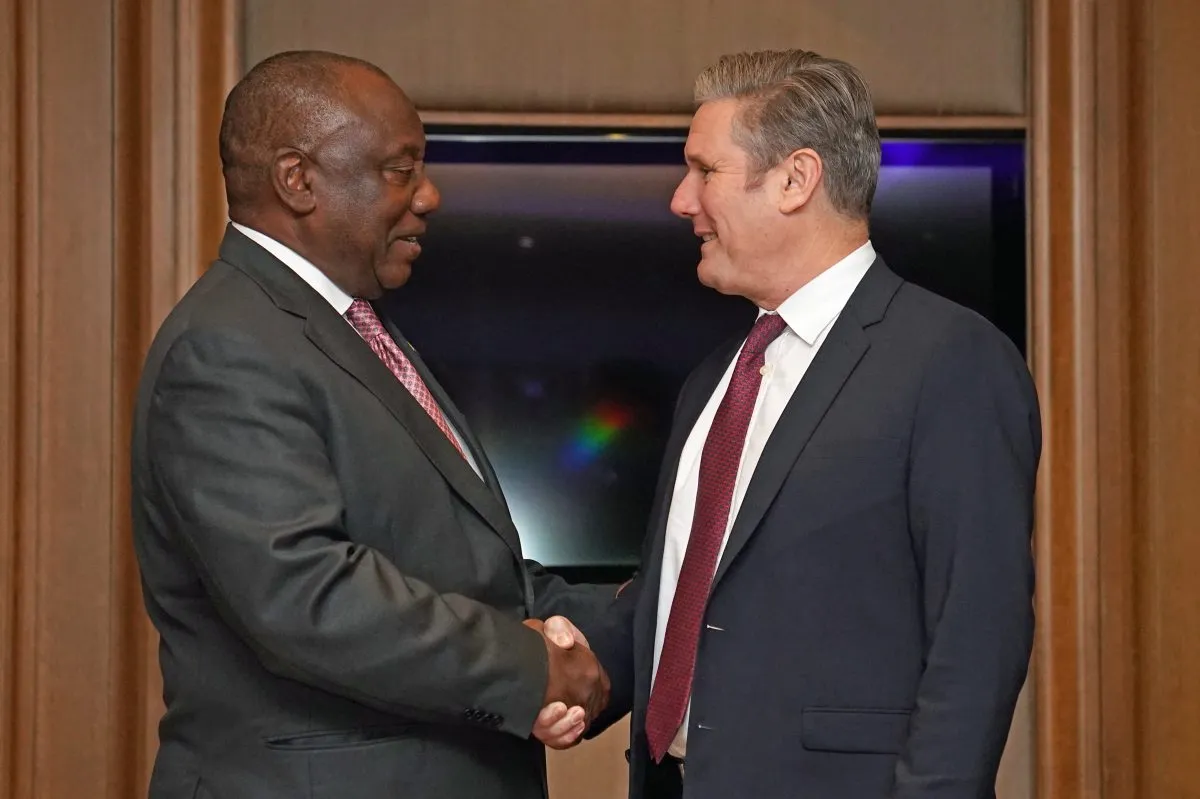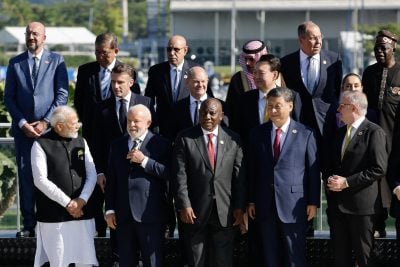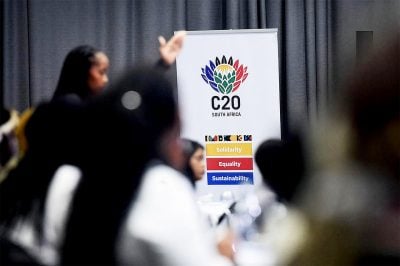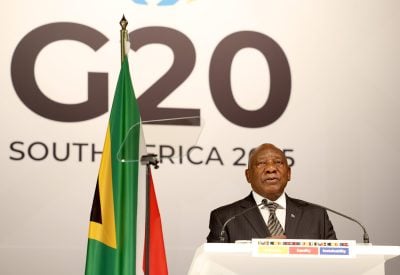“In Africa, the UK government has no coherent strategy, failed to show sufficient support over Covid-19, has consistently missed its commitments to climate finance, and has cut bilateral development funding. There have been just three visits to Africa by Conservative prime ministers since the beginning of 2019; while French President Emmanuel Macron has been to the continent 19 times since 2017.”
David Lammy wrote these damning words while his UK Labour Party was in opposition and he was its “shadow” foreign secretary. They were published in a March 2023 report for the Fabian Society, a centre-left think tank, on the future of British foreign policy. In it Lammy argued that “it would be a huge mistake for Labour to overlook the importance of Africa.”
Following the UK’s general election, which took place in July and produced a Labour landslide that ended fourteen years of Conservative-led government, Lammy is now himself responsible for British foreign policy in Africa. Many analysts hope that the new government will look to renew Britain’s relationships in the continent after a period in which engagement was limited. Perhaps the only major Africa-related policy pursued by the last government was the failed attempt to deport asylums seekers to Rwanda, which Labour scrapped on its first day in office, saying that it had cost the country £700m ($900m).
What and whose is Labour’s plan?
Lammy’s sharp criticisms of Britain’s recent approach to the continent – as well as Labour’s election promises of “change” – suggest that a new approach to Africa is in order. But what will that new approach look like?
Alex Vines, who leads the Africa Programme at the Chatham House think-tank in London, tells African Business that this is not yet entirely clear. “David Lammy has told African diplomatic envoys that there will be an updated Africa strategy, but who will lead on this and what difference it will make is difficult to predict,” he says.
“We will see a lot more cabinet-level visits to the continent – there has not been a UK cabinet-level visit to South Africa since 2018 for example – and encouraging trade will be a key priority for the new British administration,” he predicts.
Mohamed Cassimjee, who was until 2020 a senior diplomat for the South African foreign service and now works as a geopolitical consultant in the UK, notes that successive UK governments have tended to “look at the continent as one big bloc” and have therefore not been attuned to “individual countries’ needs, aspirations, and challenges”. He argues that the UK needs to engage more closely with Africa’s regional bodies and to dedicate more attention and resources to building stronger bilateral relationships, particularly with South Africa, Nigeria, Egypt and Kenya, the continent’s largest economies.
“Labour needs to work out how to complement Africa’s existing policies and organisations,” he says. “How can the UK support the African Union’s Vision 2063? How can it become a stronger partner for the AU? What support do they have in place for the Southern African Development Community? The Economic Community of West African States? The East African Community?”
‘Rebuild the Foreign Office’
Wayne Hennessy-Barrett is a British businessman who founded 4G Capital, a fintech company in Nairobi. He has a similar assessment. He tells African Business that “Africa is too diverse for a single strategy, but deepening “investment, not aid” would be a good summary”.
“We must rebuild our Foreign Office to have a physical presence in every African country, staffed by experts who can rebuild our institutional memory and deepen relationships on the continent that will comprise 30% of the global workforce by 2050,” he argues.
“Those embassies and High Commissions should be anchors for local and regional British Chambers of Commerce, and actively support efforts and negotiations to support British-owned businesses, and the local portfolio companies of British investors.”
The incoming Labour government has made achieving stronger economic growth its central priority.
The OECD predicts that UK GDP will grow by just 0.4% in 2024 and 1% in 2025.
Labour’s manifesto pledged to “secure the highest sustained growth in the G7”. If it is to have any hope of achieving that promise, opening up new trade routes in fast-growing emerging markets, including in Africa, will be crucial.
A summit would be a sign
An early indicator of how seriously the new Labour government is taking Africa as an investment opportunity will be whether it holds a UK-Africa Investment Summit.
The last such event took place as far back as January 2020. Another summit was supposed to be held in April this year, but the then UK government decided to postpone it and the new one has not yet announced a date.
One of the topics that could be on the agenda is trade deals. Hennessy-Barrett says that “reciprocal trade agreement with individual countries is the uncashed dividend of the painful Brexit saga – smart, catalytic, and expert investment in Africa can open up the huge amount of capital sitting unproductively in African banks.”
Furthermore, Cassimjee suggests that the UK should engage more deeply with regional bodies and individual countries, whether that is through reciprocal trade deals or fora such as the Investment Summit. He argues that the most obvious place to start would be in South Africa, traditionally the UK’s largest market for both imports and exports in Africa.
“The UK needs to leverage its relations with South Africa more greatly in order to use it is a gateway into Africa,” Cassimjee tells African Business. “South Africa has a special place because it’s a highly industrialised country in Africa. British companies are established there, and there’s a degree of certainty in terms of business practices. I think South Africa should be a critical cog in UK-Africa policy.”
Beyond colonial contrition
While there is clearly practical work to be done as Britain attempts to rebuild its relationships in Africa, Hennessy-Barrett suggests that a change of mindset among policymakers and diplomats in London is also required.
“Britain’s approach to Africa in the past has tended to focus on post-colonial contrition blended with unwillingness to engage in a fully equitable relationship,” he says. “The UK continues to be the gold standard for aspiring democracies around the world. It needs to resume a leadership role through partnerships, investment, and a common global purpose for a better future.”
Cassimjee believes there are reasons to be optimistic about the future trajectory of UK-Africa relations and notes that the stage is set for a fundamental reset of London’s foreign policy towards the continent.
“We must not forget that the Commonwealth is a very important entry point into Africa. At the next Commonwealth Summit [to be held in Samoa in October 2024], there is going to be a new prime minister, a new foreign secretary, and a new King,” he says.
But perhaps the extent to which the UK’s new Africa strategy – whatever that will turn out to be in practice – is successful may depend on whether Lammy comes good on his pledge to treat African countries as “equal partners”.
Indeed, Hennessy-Barrett advises that “the UK needs to address the Global South on principles of equality, fairness, opportunity and accountability.”
To achieve this, Cassimjee suggests that a degree of humility will be required on the part of the UK. In light of intense geopolitical competition on the continent and the country’s acute need for new sources of economic growth, he argues that the new government will need to recognise that it is no longer possible simply to take Africa for granted.
Want to continue reading? Subscribe today.
You've read all your free articles for this month! Subscribe now to enjoy full access to our content.
Digital Monthly
£8.00 / month
Receive full unlimited access to our articles, opinions, podcasts and more.
Digital Yearly
£70.00 / year
Our best value offer - save £26 and gain access to all of our digital content for an entire year!

 Sign in with Google
Sign in with Google 



